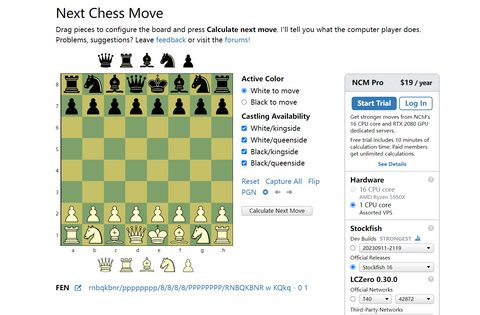In the digital age, chess enthusiasts and novice players alike have the opportunity to gain a better understanding and enjoyment of this age-old strategy game through chess simulators.
This article delves into what chess simulators are, discusses their functions and applications, and compares different types of simulators to help you choose the tool that suits you best.



1. What is Chess Simulator?
First, let's understand what a chess simulator is. A chess simulator is a computer program or application designed to simulate the game of chess. It provides a virtual chessboard that allows players to move chess pieces and engage in games with computer opponents or other players, all with the aim of improving their chess skills. These simulators can be provided in the form of desktop applications, online websites, or mobile apps.
2. Functions and Applications of Chess Simulators
2.1 Basic Functions of Chess Simulators
Chess simulators typically offer the following fundamental functions:
-
Graphical Interface: Simulators provide a visual representation of a chessboard and pieces, making it easy for players to move pieces and assess the game state.
-
Human vs. Computer Play: Simulators allow players to select opponents of different difficulty levels, from beginners to chess grandmasters, to challenge and improve their chess skills.
-
Multiplayer Options: Some simulators support online multiplayer chess, enabling real-time games with chess enthusiasts from around the world.
-
Game Storage and Playback: You can save your chess games for later analysis, learning, and sharing.

2.2 Applications in Chess Learning, Practice, and Entertainment
Chess simulators have diverse applications:
-
Learning Tool: For novice players, simulators serve as ideal tools for learning chess rules and basic strategies. You can practice and learn without the pressure of live games.
-
Tactical Training: By playing against computer opponents or other players, you can enhance your chess tactical skills, including calculation, defense, and offense.
-
Opening and Endgame Practice: Simulators allow you to focus on specific chess openings and endgames, helping you make progress in these critical areas.
-
Entertainment: Chess simulators are also great for casual entertainment. You can engage in games with friends or online community members, enjoying intellectual challenges on the board.
3. Different Types of Chess Simulators
Now, let's explore various types of chess simulators, each offering different features, user experiences, and accessibility.
3.1 Different Types of Simulators
-
Open-Source Software: Open-source chess simulators are freely available and are typically maintained by developer communities. They often come with high customizability but may lack some advanced features.
-
Online Simulators: Online chess simulators run in web browsers, requiring no downloads or installations. They provide convenient options for quick games.
-
Standalone Applications: Some standalone chess simulator applications are designed for desktop or mobile devices. They typically offer more features and convenience in terms of user interface.
Online simulators are suitable for quick gaming needs, while standalone applications offer more features and user-friendliness.
In conclusion, chess simulators are powerful tools for improving chess skills, learning, and entertainment. Whether you are a novice or an experienced chess player, you can enhance your chess prowess by using these simulators. Choose a simulator that suits your requirements and embark on your journey to enjoy this ancient and captivating strategy game!
Follow Chessnut, Know more about chess!


